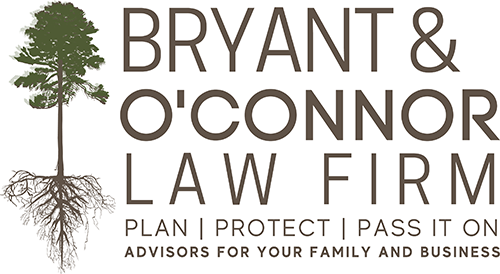Introduction
Running a business without an engaged accountant may seem like a cost-saving measure, especially for startups or small businesses on a tight budget. However, in my experience as an attorney, this omission is probably the worst one I see people make. Not having a professional to consult on financial and tax matters creates a series of challenges that will certainly affect the overall growth, stability, and legality of the enterprise. Even if a business owner gets off the ground and finds early success without an accountant, I would lose sleep every night worrying about whether I am going to get audited on my taxes. Here’s an exploration of what can go wrong when you try to run a business without professional accounting assistance:
- Non-Compliance with Tax Laws and Failure to Pay Enough Taxes:
Navigating the complex web of tax regulations is challenging without specialized knowledge. Failure to pay enough taxes or non-compliance with tax laws, even if unintentional, can result in severe penalties, legal challenges, and can tarnish your business reputation. I’ve seen many well-intentioned business owners have to quit after having a great first year because they did not accurately report and pay enough taxes. When the Federal Government puts a tax lien on you, it’s not a joke. You can avoid that situation altogether by proper planning with professionals.
- Poor Financial Planning and Strategy:
Without a clear understanding of financial principles, business owners may struggle to create viable financial plans. This lack of planning can lead to poor resource allocation, unrealistic growth strategies, and financial instability. I’m an attorney who thinks about and studies this kind of thing a lot, but I still don’t think like an accountant, and therefore I rely heavily on accountants to look out for me in certain areas.
- Cash Flow Mismanagement:
Managing cash flow requires precise forecasting, budgeting, and monitoring. Missteps in cash flow management can lead to liquidity issues, making it difficult to pay suppliers, employees, or even keep the business running. Small business accountants usually work with many businesses and have a good idea of what cash flow should look like, and they can help you identify if you have an issue and point out any options to cure a problem.
- Erroneous Financial Records:
Keeping accurate financial records is not just a good practice—it’s a legal requirement. Errors in financial reporting can cause problems when seeking funding (like loans or lines of credit) or selling the business and may lead to legal issues. Keeping accurate financial records for a business is not nearly as simple as balancing your own personal checkbook, and much of it is not intuitive. I have my accountant reconcile my books every month so that I always am confident I understand the health of my business, and this also makes tax time much less stressful.
- Difficulty in Securing Funding or Investment:
Investors and lenders typically require professionally prepared financial statements. Without an accountant, your financial records may lack credibility, hindering your ability to secure funding. Further, if you ever plan on selling your business, inaccurate financials can cost you a huge amount of money in lost value. No one wants to pay millions (or even thousands) for a business if they can’t confidently see an accurate picture of cash flow and profit and loss.
- Potential Legal Liabilities:
Poor accounting practices can inadvertently lead to breaches of contracts, employee compensation laws, or other regulations. These legal pitfalls can cost far more in the long run than the investment in professional accounting services.
- Inefficient Use of Owner’s Time:
Every business owner should spend some time on their financials, but too much time spent grappling with accounting matters is time taken away from focusing on core business activities. This diversion can hamper growth and innovation, ultimately costing the business in lost opportunities. Engaging an accountant for a sufficient scope of service can free up your time to focus on what you are good at, maximizing your profit.
- Challenges in Scaling the Business:
As a business grows, financial complexity increases. Without an accountant’s guidance, scaling the business can become chaotic and unsustainable, leading to operational inefficiencies and potential failure.
- Loss of Potential Tax Advantages:
Accountants are skilled in identifying legal tax deductions and credits. Without this expertise, business owners may miss out on opportunities to minimize tax liabilities, costing the business money that could be reinvested.
Conclusion
While it might seem appealing to cut costs by forgoing professional accounting services, the risks and potential pitfalls are too substantial to consider skipping this investment. From legal challenges to strategic missteps, the absence of an accountant can create an unstable foundation that threatens the business’s success.
As an attorney, I’ve witnessed the consequences of these oversights, and they can be devastating. The collaboration between legal and financial professionals is essential for sustainable business growth and legal compliance.
If you’re starting or running a small business and have questions about legal or financial matters, Bryant & O’Connor Law Firm is here to guide you or point you in the right direction. Our team deals with business law planning, and we’re committed to helping our clients succeed. Feel free to reach out to us for professional assistance.
As always, our blog articles provide general information to make you think about the planning you need to do. However, blog articles are not legal, financial, or accounting advice tailored to your specific situation, and therefore you may not rely on this or any article we produce as professional advice. Please consult with the appropriate professional for your needs.

